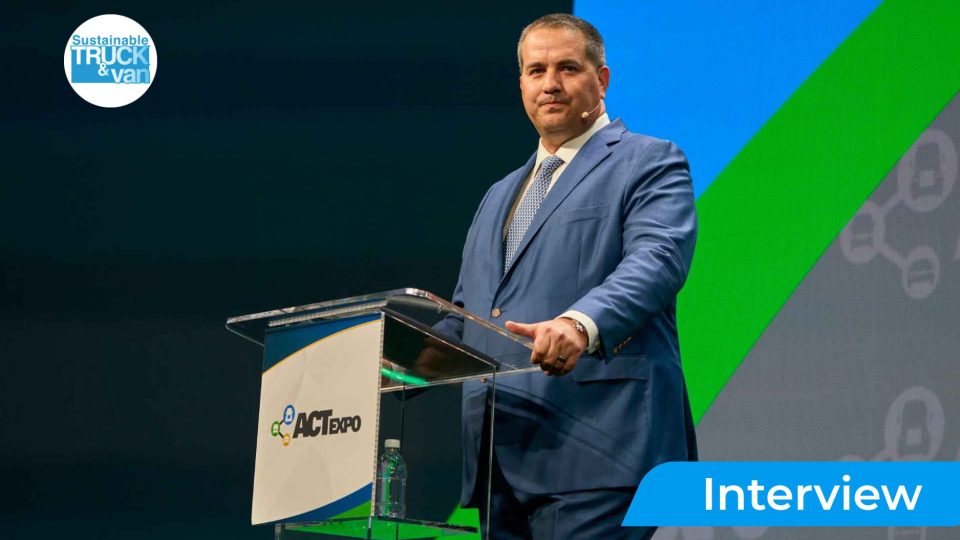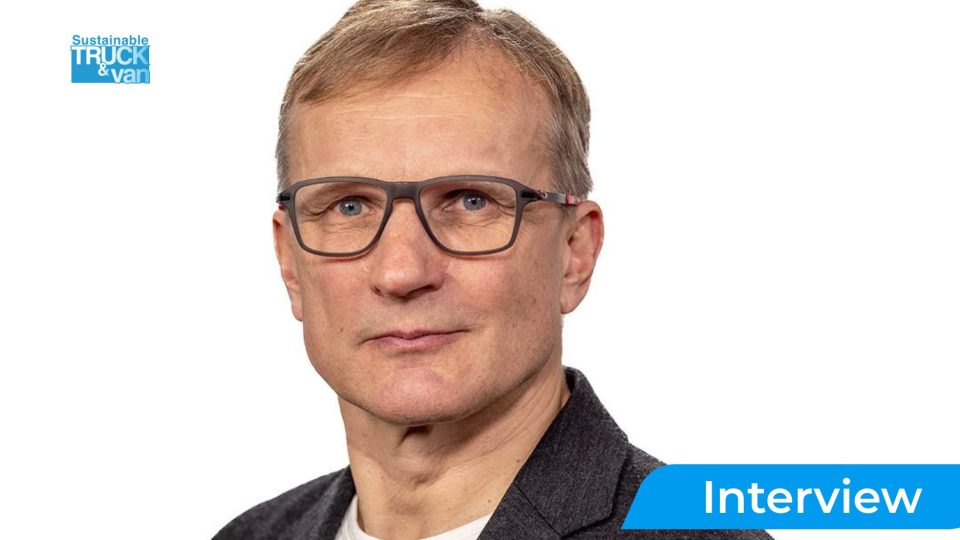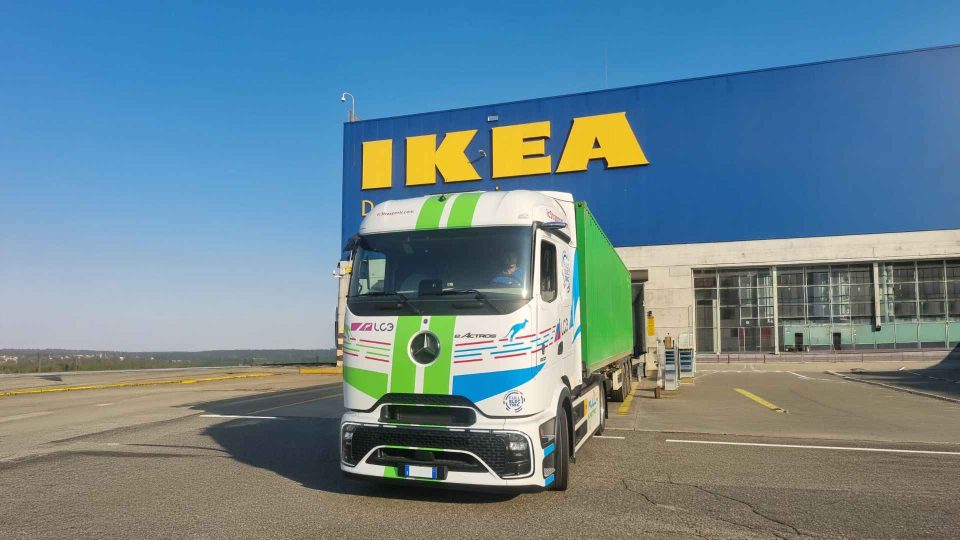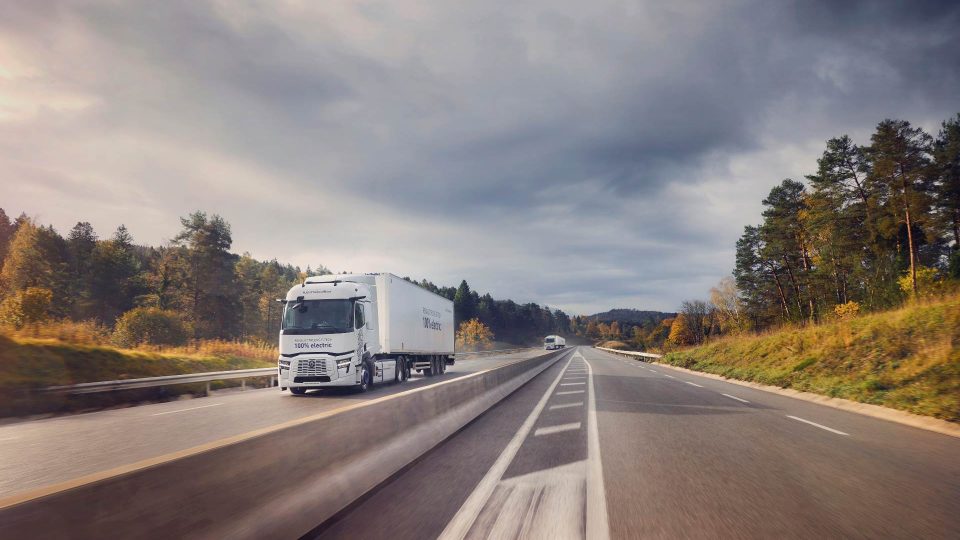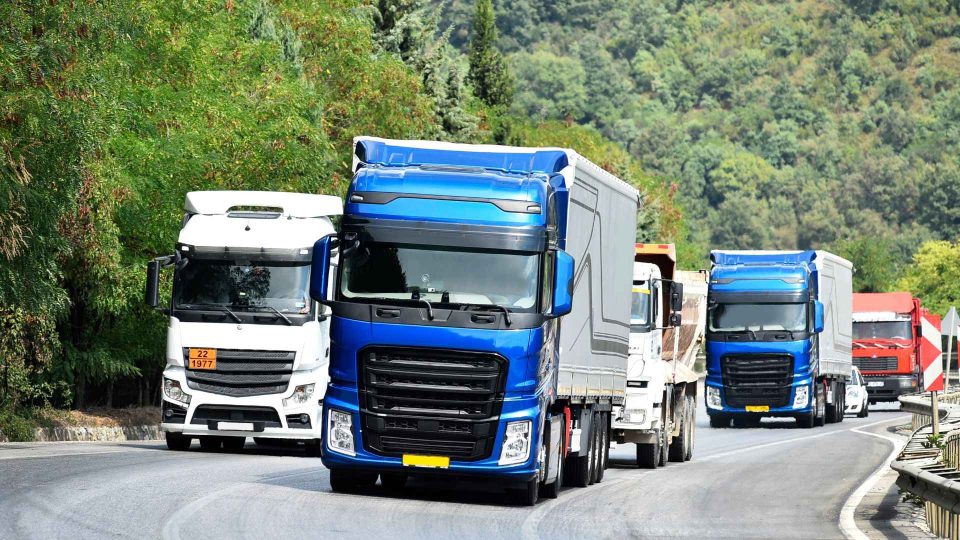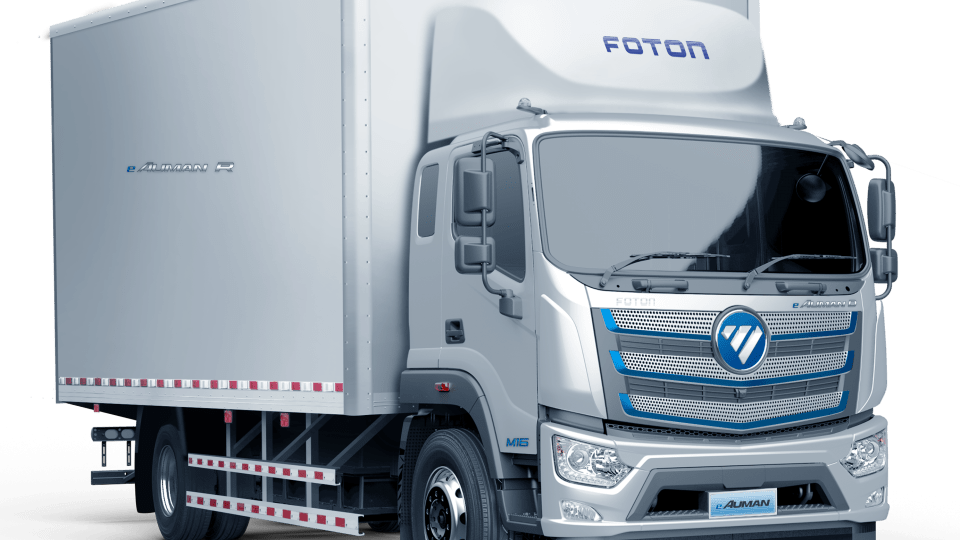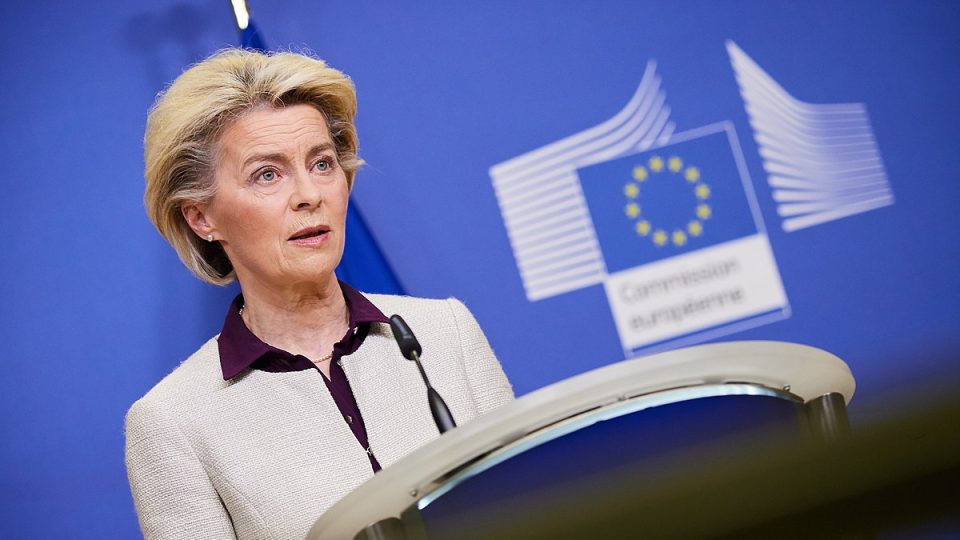The Netherlands leads Europe with zero-emission freight zones (ZEZ-F): first effects on the truck and van market
The Netherlands’ zero-emission freight zones are transforming urban logistics. In the first half of 2025, 78% of all new vans registered in the Netherlands were battery-electric, compared to an EU average of just 9%. Electric truck sales have also surged, rising 188% year-on-year and accounting for nearly 20% of all new electric trucks sold in the EU.
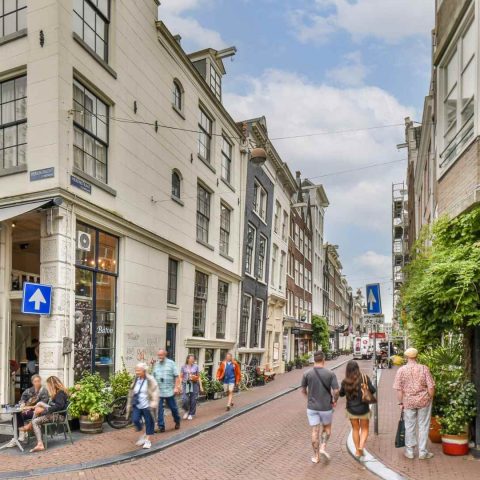
Launched in January 2025, Zero-Emission Zones for Freight (ZEZ-F) now operate in 18 Dutch cities. Their impact has been immediate. According to Clean Cities, as reported by Electrive, municipalities with ZEZ-F zones, or even those adjacent to them, are seeing faster fleet electrification and a sharp drop in diesel registrations.
In the first half of 2025, 78% of all new vans registered in the Netherlands were battery-electric, compared to an EU average of just 9%. Electric truck sales have also surged, rising 188% year-on-year and accounting for nearly 20% of all new electric trucks sold in the EU.
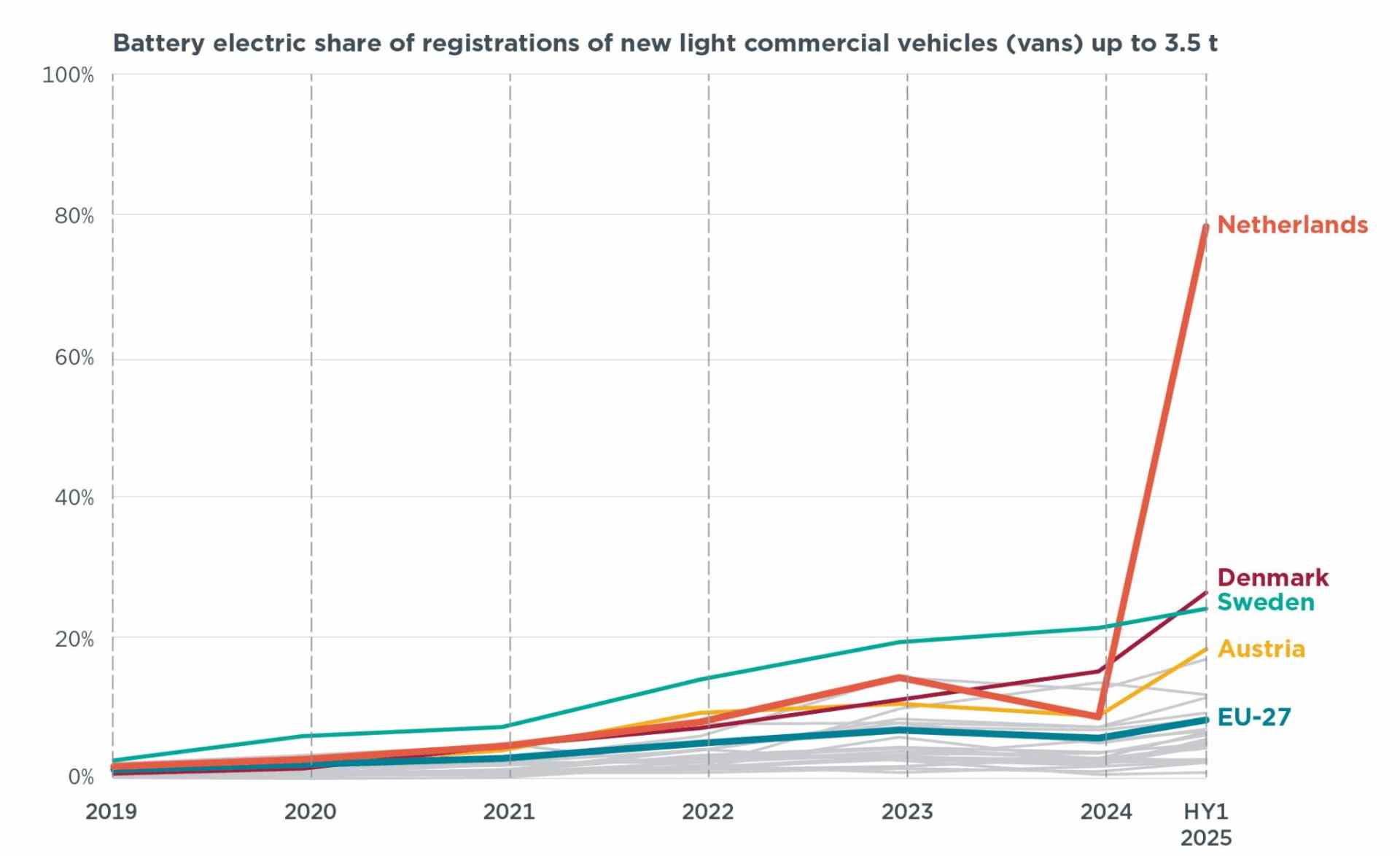
Here‘s a very interesting study carried out by Sandra Wappelhorst, Research Lead at the ICCT, which also explains what are the ZEZ-Fs designed and implemented in the Netherlands. In addition, the author gives precious advice to other countries willing to walk along the same path in the near future. The figures and diagrams you see in this article come from this study.
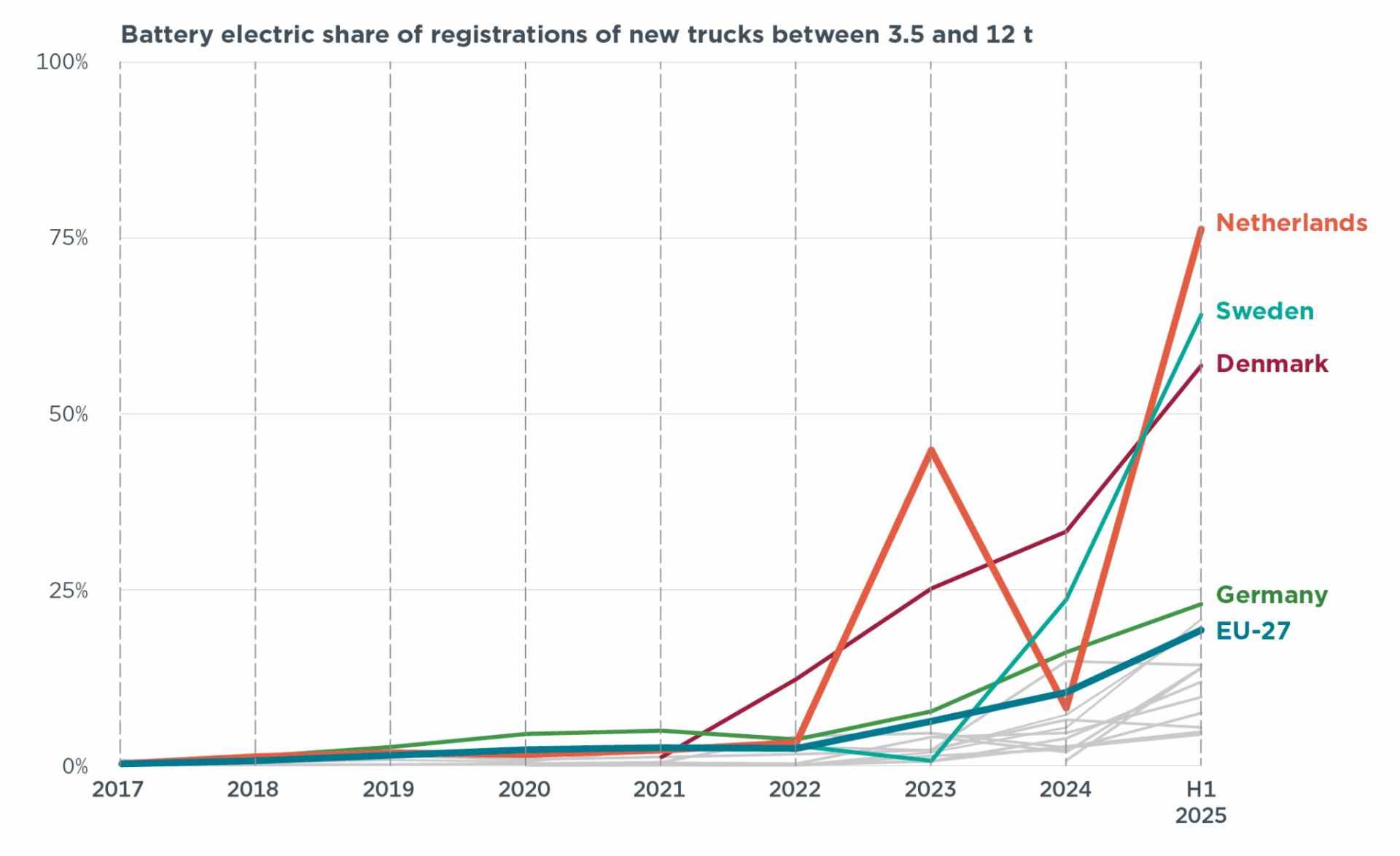
A Clear Policy Framework That Builds Confidence
“Experience in the Netherlands shows that zero-emission zones are driving real transformation,”
says Barbara Stoll, Director of the Clean Cities Campaign. “They provide clear rules and the certainty companies need to invest in electric fleets. At the same time, they make our city centres healthier, quieter, and safer places to live and work.”
Clean Cities stresses that policy alone isn’t enough. The Dutch model works because it blends strong regulation with financial incentives. Cities received dedicated subsidies, while logistics operators benefited from national support programs, tax advantages, and transitional exemptions.
Compliance is enforced through automatic number plate recognition and fines, ensuring a level playing field for all operators.
The Business Case for Electric Fleets
For many companies, the total cost of ownership (TCO) for electric vans is already lower than diesel alternatives, thanks to reduced fuel and maintenance expenses. However, high upfront purchase costs remain a hurdle, especially in the low-margin logistics sector.
Nevertheless, the Dutch example demonstrates that when regulation, funding, and enforcement align, cities can drive substantial progress toward zero-emission urban logistics—delivering both environmental and economic benefits.



